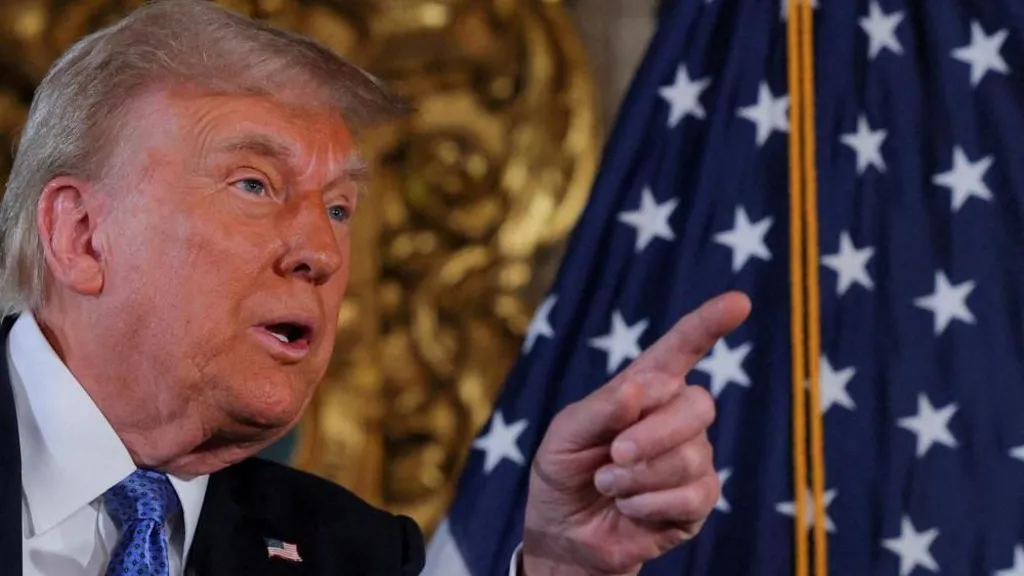Trump’s Shutdown Gamble Exposes Limits of His Power
In the latest political showdown, Donald Trump’s shutdown gamble has underscored the limitations of his power as a former president. While the former leader is no stranger to using dramatic tactics to push his agenda, the shutdown—fueled by his demands for border wall funding—has highlighted the complex dynamics of American politics and the constraints that even a powerful figure like Trump faces in today’s polarized environment.
What Led to the Shutdown?
The political turmoil surrounding the shutdown gamble stemmed from Trump’s demand for significant funding for the construction of a border wall, a campaign promise he made during his presidency. As the government faced a looming deadline, Trump dug in his heels, demanding billions in funding for the wall. However, his refusal to compromise with Democratic lawmakers, coupled with the Republican Party’s internal divisions, led to an impasse. The government subsequently shut down as funding disputes persisted.
While Trump initially stood firm on his stance, the shutdown gamble exposed just how difficult it is for any president—no matter their power or influence—to navigate a divided Congress and public opinion. Trump’s inability to secure the necessary backing for his priorities revealed the limitations of his political influence.
The Fallout: Public Backlash and Impact on Governance
One of the most immediate consequences of the shutdown was the significant backlash from the American public. A government shutdown, particularly one centered on a highly controversial issue like the border wall, can have wide-ranging effects on the country. Federal workers were furloughed, essential services were disrupted, and public trust in the government was shaken.
Trump’s strategy to force a shutdown in the hopes of gaining leverage in negotiations ultimately backfired. While his base may have supported his hardline stance, the broader American electorate grew frustrated with the political gridlock. The shutdown also exposed Trump’s inability to rally Congress, including members of his own party, to support his initiative, further signaling the limits of his influence.
Political Gridlock: A Sign of Changing Times
Trump’s shutdown gamble serves as a stark reminder of the deep political divides within the country. While the former president was known for his brash, often unpredictable approach to governance, the political landscape has evolved significantly since his time in office. The rise of more progressive voices within the Democratic Party, alongside an increasingly vocal Republican establishment, has created a political gridlock that limits the power of even the most influential figures.
The fallout from the shutdown and Trump’s inability to get his way in this battle exposes a critical truth: the political environment today is far more fragmented than it was during his presidency. The current climate demands compromise, cooperation, and strategy—not just unilateral decision-making and gambles.
Trump’s Loss of Influence in a Shifting Republican Party
Trump’s decision to push for a shutdown and his inability to navigate the political landscape are also indicative of a shift within the Republican Party itself. Once the undisputed leader of the GOP, Trump now faces challenges in maintaining his hold over the party as a growing number of lawmakers and political figures seek to distance themselves from his more extreme positions. This has led to a power vacuum, with new leaders emerging and questioning the direction in which Trump wants to take the party.
The political ramifications of this shift have created a more complex environment for Trump, one in which his political leverage is not as significant as it once was. Despite his popularity among a certain segment of the Republican electorate, Trump’s hold over the party and its leadership is weakening, and this was evident during the shutdown standoff.
What Does This Mean for the Future?
The shutdown debacle and the limits of Trump’s power have significant implications for his future political prospects. While he remains a prominent figure in American politics, the inability to secure his desired policies—even with the backing of his party—has exposed the fragility of his influence. The shutdown serves as a cautionary tale, showing that political power is not absolute, and that navigating the modern political landscape requires more than just a confrontational approach.
Looking ahead, Trump’s gamble may mark a pivotal moment in his ongoing influence in American politics. While his base remains loyal, the broader political environment may require a shift in strategy. For now, the shutdown gamble has provided a stark reminder that even the most powerful figures in American politics can be limited by a polarized and divided system.
Conclusion: The Changing Political Landscape
Trump’s shutdown gamble has revealed a central truth: his power, once seemingly unlimited, is now constrained by the evolving dynamics of American politics. As the country moves further into an era of political gridlock, his approach to leadership may need to adapt. The limits of his influence, exposed by this latest showdown, mark a critical moment in the ongoing evolution of the American political system.
